6 Bugs That Can Ruin Your Fall Garden
Crisp air, changing leaves, and delicious, comforting meals. Fall is right around the corner. For those who love to use vegetables grown in their garden for pumpkin pie and sweet potato souffle, bugs may become your worst enemy. Many insects strike hardest right before fall, when vegetables are at their peak. This is because bugs need extra food before settling down for the winter months. Your garden becomes a prime target when this happens. Learn about six insects that can damage your garden so you can stop them from bugging around this fall.
Aphids
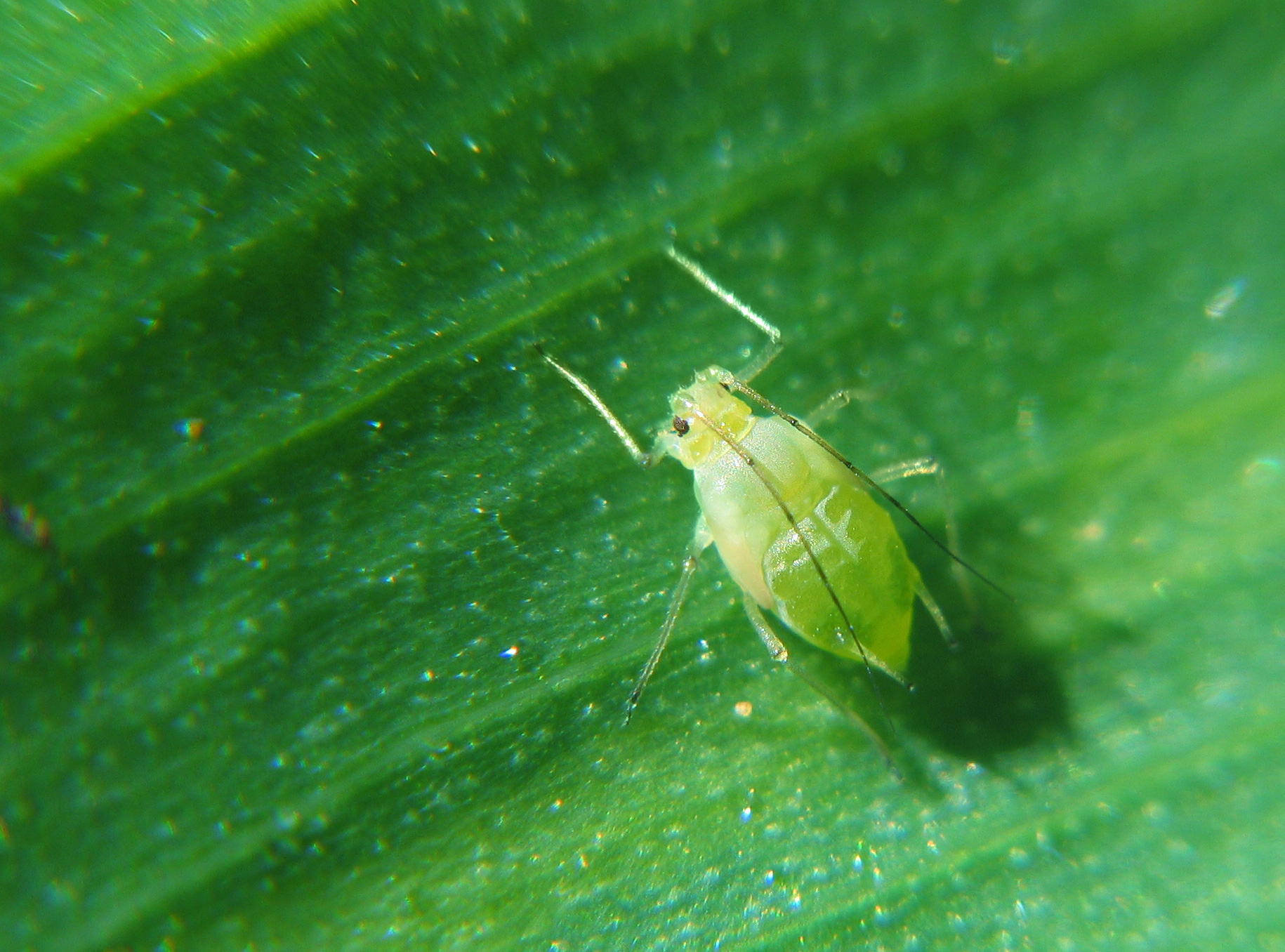
Insects, such as lady beetles and lacewings, help manage invasive species, but populations soar in late summer as the weather gets warmer. These small, pear-shaped insects are like little vampires, piercing plants and sucking out the fluids inside. During this time, aphids give birth to a new population. Batches of new baby aphids can reproduce 7 to 10 days after birth. Damage peaks as temperatures cool down.
Cabbage Loopers
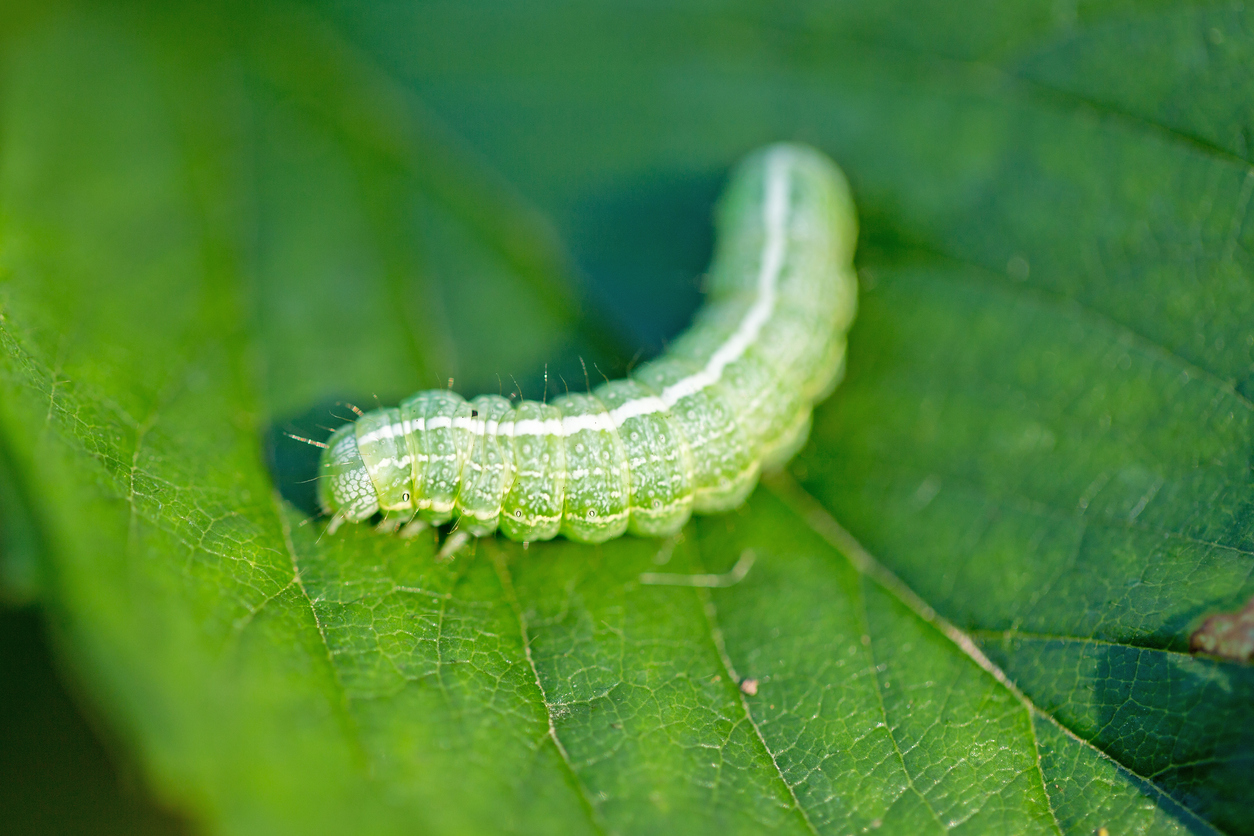
Nom. Nom. Nom. Cabbage loopers are leaf-eating caterpillars that love eating plants like cabbage, kale, and bok choy. How can you identify these insects? Just as their name suggests, these inchworm-like bugs arch their backs into loops. You can spot them by their white-to-pale green coloring and white stripes.
Corn Earworm (or Tomato Fruitworm)
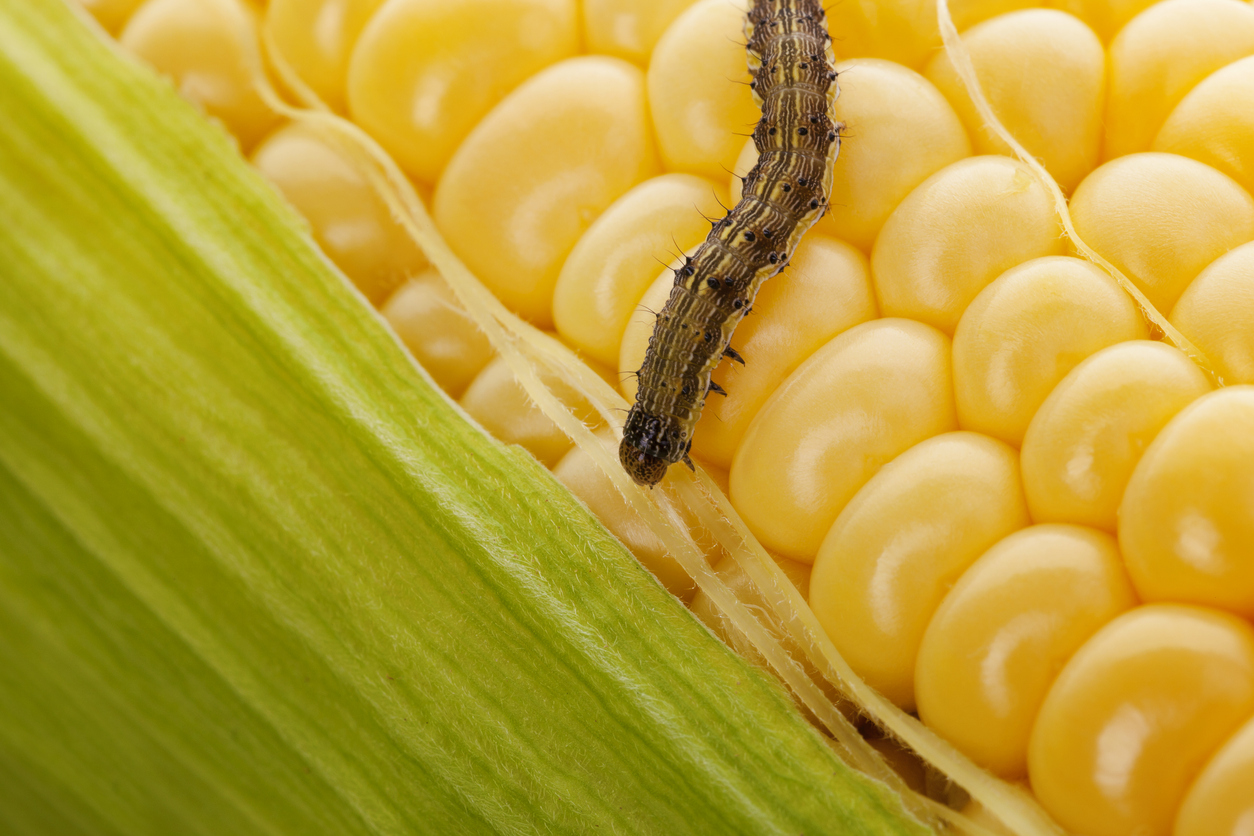
Known by two names, corn earworms or tomato fruitworms, they burrow and eat some of our most popular crops (hint: the answer’s in the name). Spotted by their dark and light tan stripes, these pests grow over the summer months as new generations arrive every 28 to 35 days.
Cucumber Beetle
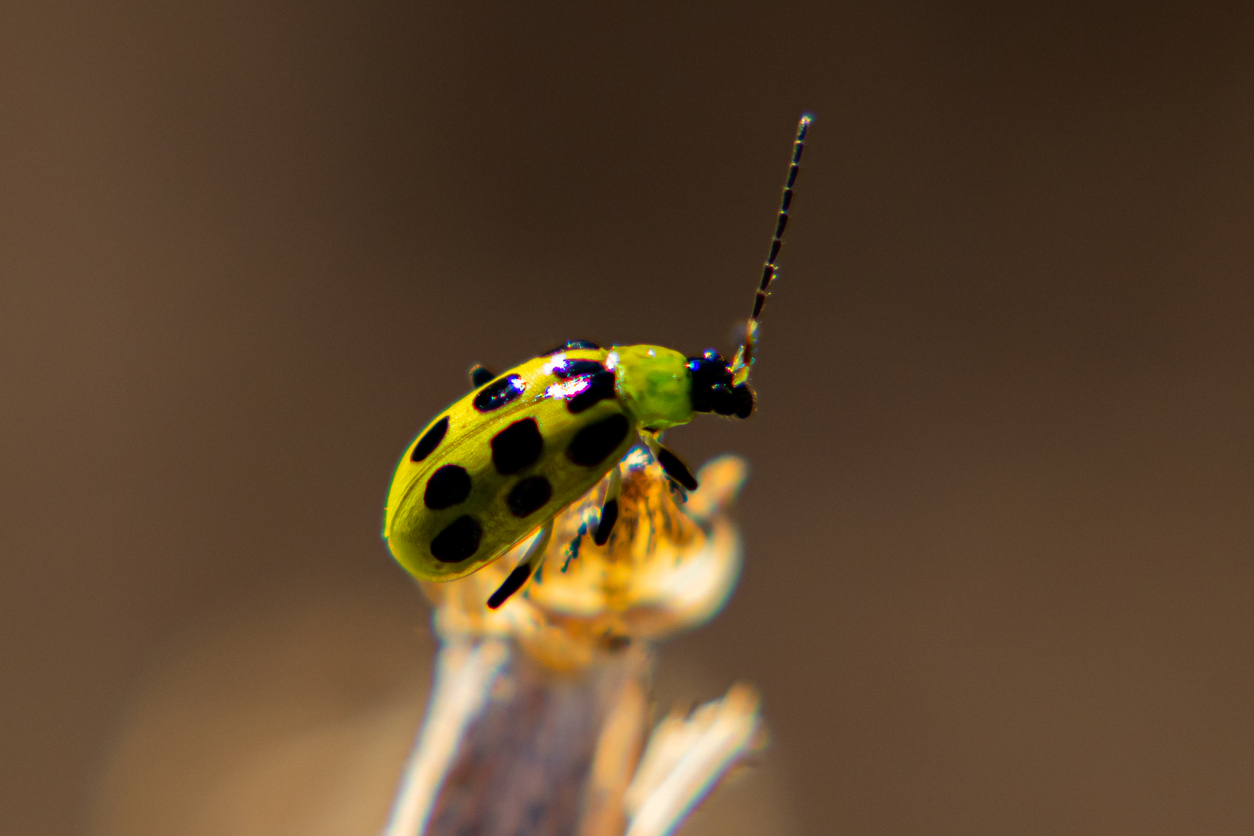
If you’re planning on growing fruits and vegetables in your garden this fall, it’s good practice to look out for cucumber beetles. They’re best known for attacking melons, cucumbers, eggplants, beans, and other crops. You can identify them by their spotted or striped design.
Cutworms
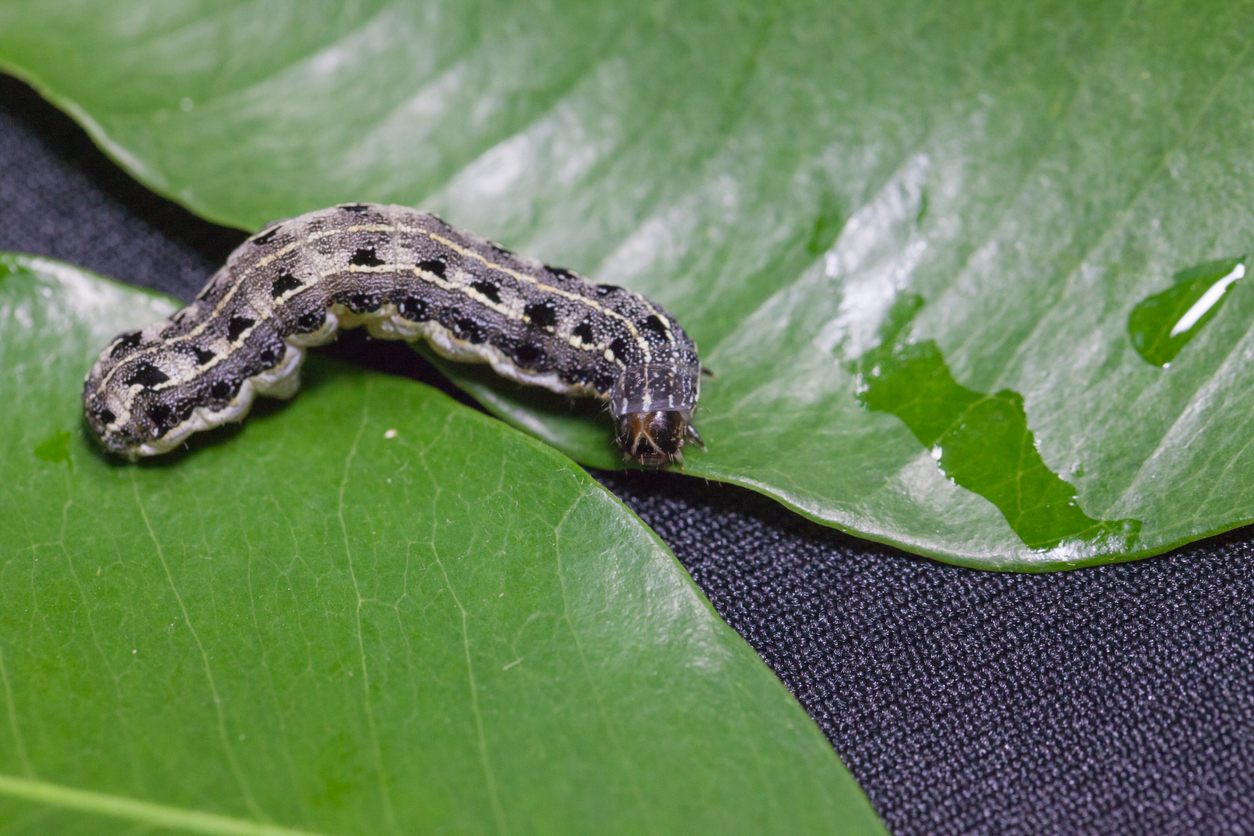
Wilted veggies and partially or completely cut stems are cutworms’ favorite dining options. During the late season, these elusive pests spend their time in soil and only appear at night or on cloudy days. The crops that are most at risk from these critters are cabbage, carrots, lettuces, and peppers.
Stink Bugs
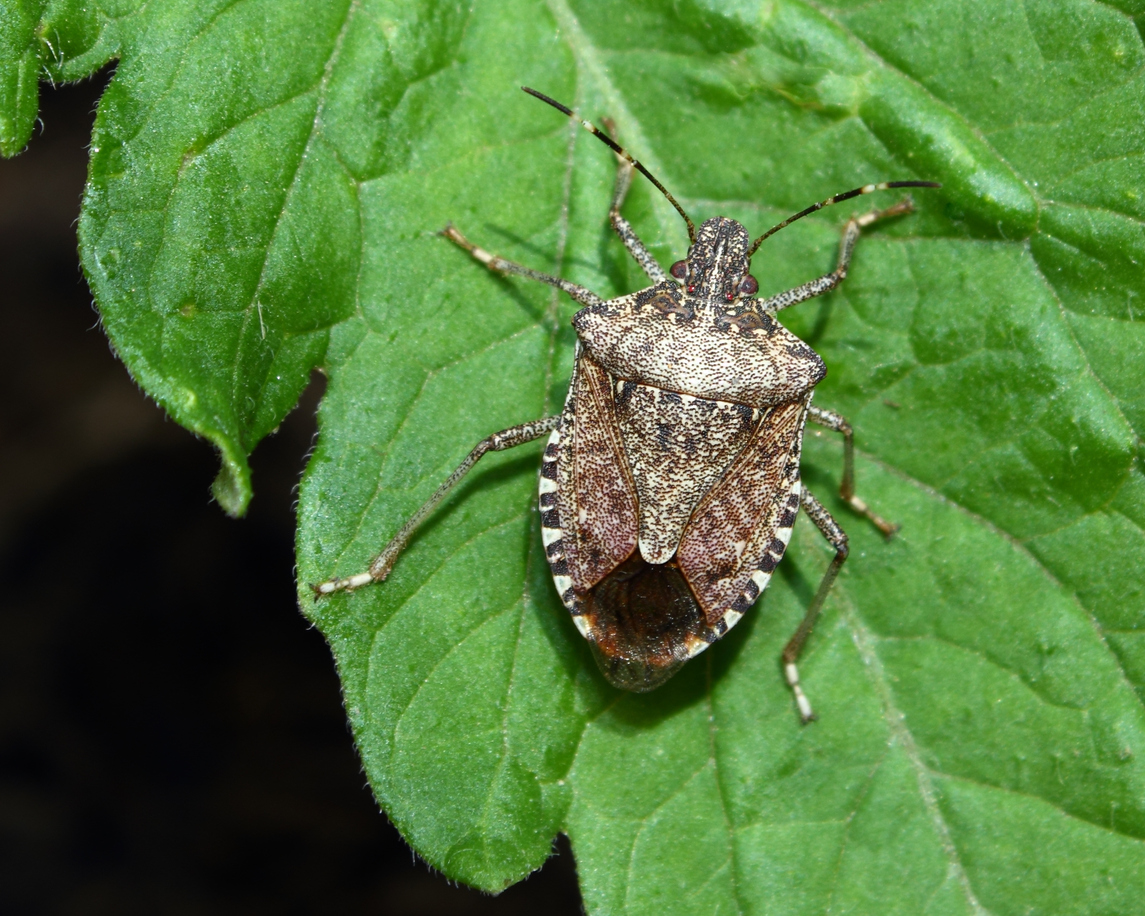
Most homeowners or garden lovers are aware of the ubiquitous stink bug, known for its shield-like shape and off-putting odor. Numerous species of stink bugs affect late-season crops, like cabbage, peas, beans, and okra. They hang out in weedy garden perimeters, so good garden maintenance is key.
What can you do to help cut back on garden pests?
Weed: After you have planted your fall vegetables, be sure to trim, cut, and remove excess weeds. These are perfect cold weather hiding spots for bugs.
Till: Even though tilling is mostly done in summer, it’s also helpful in the fall months. Doing so will help expose insects and stop their life cycle. Pro tip! Chickens are great tillers if you want to include livestock in your process.
Mulch: Healthy soil leads to healthy plants. When your crops are happy, they’re less likely to be affected by garden pests. Check your soil’s pH and add fertilizer as needed.
Plan: As the season comes to a close, pay close attention to which bugs are the biggest nuisance. Make a list in a journal or in your phone so you’re prepared for the following season. For example, if you had trouble with your corn crop, plan on moving your corn somewhere else so you’re not giving pests an easy place to thrive in the spring.
Let us help you keep your garden bug-free
Don’t let these insects ruin all the hard work you’ve put into growing a beautiful garden. If you need assistance with controlling bugs, we’re here to help. Call Arrow Exterminators today.






 YouTube
YouTube Facebook
Facebook Twitter
Twitter Instagram
Instagram